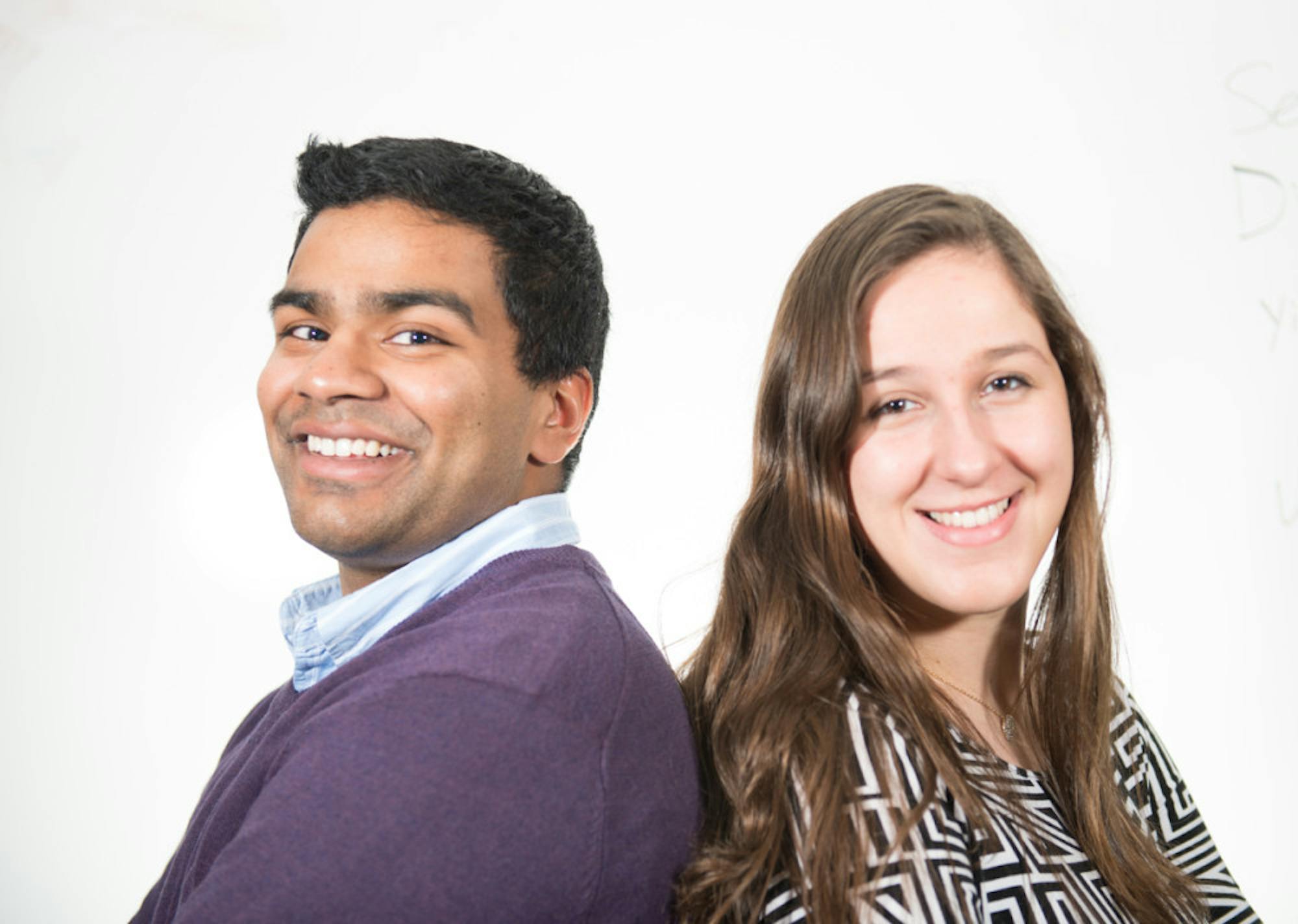Who are they: Neil Joseph, the presidential candidate, is a sophomore from Columbus, Ohio, living in Stanford Hall. He studies political science and economics with a minor in Middle Eastern studies. Currently, Joseph serves as treasurer of the sophomore class and sits on the financial management board, which oversees spending for all campus clubs and student organizations.
Noemi Ventilla hails from New York City and resides in Pasquerilla East Hall. The sophomore majors in political science and peace studies and serves as the current sophomore class president.

First priority: Continuing conversations with students, administrators and faculty. “If we were elected, from Wednesday until April 1 we would continue to meet with students directly because we realize that’s the best way to get good ideas and see what students want and need from student government,” Joseph said.
Top priority: Joesph/Ventilla said their biggest overall goal would be ensuring that students have a say in big University decisions in the future. They hope to establish communciation lines that will last beyond a single year and include more student voices in conversations about topics from Campus Crossroads to the P.E. program.
Best idea: As sophomores, Joseph and Ventilla said they would leverage the two years they have left on campus to leave a long-term impact. Ventilla said she believes past administrations would have benefitted from the chance to serve two terms or at least remain on campus after the first term to accomplish long-term goals. After the 2015-16 term, they said they would consider either running for re-election or providing consultation to the next administration.
Worst idea: When asked about plans for big issues facing campus such as sexual assault or diversity and inclusion, Joseph/Ventilla repeatedly brought up the new P.E. program as an opportunity to address these concerns in a classroom setting. While it’s true that the new structure of P.E. provides an opporunity to broaden the scope of required sexual assault prevention education for students, that alone cannot suffice as a plan to deal with the broader question of how to prevent and respond to incidents on campus.
Most feasible: Joseph/Ventilla’s suggestions for improving the quad markets that began this year are specific and relatively simple. They would like to give student vendors a chance to sell items alongside the South Bend representatives, and their suggestion to use the markets as an opportunity for networking and engagement with South Bend businesses seems like a good step toward improving relations between Notre Dame and the community beyond.
Least feasible: The pair admitted they “have heard from the administration that it’s not feasible” to change the dining hall setup, and yet they emphasized it as a major part of their platform. Adding take-out boxes to carry out dining hall food would be detrimental to the communal meal-sharing experience that is a hallmark of life on campus. Furthermore, the suggestion that leftover meal swipes be transformed into flex points seems highly unlikely.
Notable quote: “Although we both come from a programming background, we have both been on the administrative and policy side of things too. That really informed our decision to run, because as much as we love the programming side, the changes we wanted to see and do were only possible on the policy side.” — Ventilla
Fun facts: Joseph has visited the world’s tallest building, the Burj Khalifa in Dubai. Ventilla was born in Hungary before she moved to New York City as a child.
Bottom line: Joseph and Ventilla have worked closely together on two class councils, and they make a very charismatic and compelling team. However, their proposals seem largely shortsighted and fail to take into account the bigger cultural and social issues that students have come to expect action on. They have a keen sense of the potential for change on campus in the coming year but do not seem to have fully developed their big picture plans.













